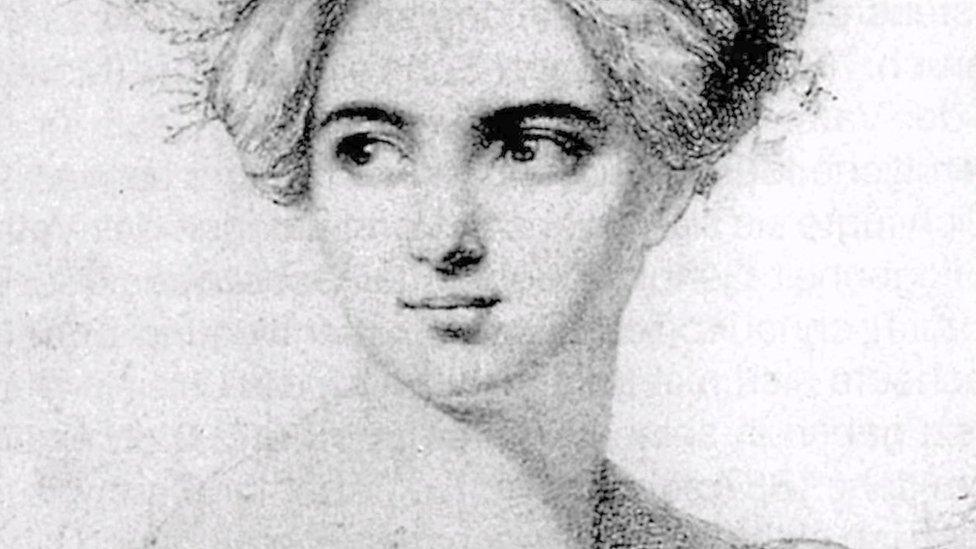Belated premiere for Fanny Mendelssohn
- Published

Sheila Hayman: "She's got five Twitter accounts, which is quite unusual for someone who's been dead for 170 years"
A sonata by Fanny Mendelssohn, which was mistakenly attributed to her more famous brother Felix, will be performed under her name for the first time on International Women's Day.
The Easter Sonata was "lost" for 140 years before being discovered in a French book shop in 1970.
Many assumed it was composed by her younger brother but a US scholar proved otherwise by studying the manuscript.
It will be broadcast live on BBC Radio 3 this Wednesday, 8 March.
These days Fanny Mendelssohn is considered to be as worthy of study as Felix, but in her lifetime she was barred from composing by her father, who said a public career was unsuitable to her sex.
"She was an amazing woman, who persevered despite complete discouragement," her great-great-great granddaughter Sheila Hayman told BBC Radio 4's Today programme.
"When she was 14, she learnt all of Bach's 48 preludes and fugues off by heart - which is quite a thing - and her father's response was to say, 'That's all very well, dear but you're a girl, so you can't be a musician... You've got to stay at home and make the lives of men better.'"
Undeterred, she wrote about 500 pieces, including the music for her own wedding and a cholera cantata, after nursing her whole family through cholera, before she died aged 41 in 1847.
Felix included six of her songs, unacknowledged, in his own Op. 8 (12 Songs for voice and piano) and Op. 9 (12 Lieder for voice and piano) but discouraged her from publishing under her own name, perhaps fearful that she would come to overshadow him.
Her diaries, however, went on to become the principle source of information on the Mendelssohn family.
'Completely new light'
When The Easter Sonata was discovered, the manuscript was marked "F Mendelssohn," and many concluded it was by Felix.
American Mendelssohn scholar Dr Angela Mace Christian proved otherwise after gaining brief access to the original, privately-owned manuscript in 2010.
By comparing the handwriting to Fanny's, analyzing the notes and alterations, and matching the page numbers to a missing section in an album of Fanny's music, she was able to prove that the sonata was her work.
The original manuscript was since resold at auction and has disappeared into private hands.
"This is a major work, and one of huge ambition for someone aged only twenty-three," said Dr Christian.
"Its rediscovery and proper attribution shows Fanny's stature as a composer in a completely new light."
The piano sonata will be performed in a lunchtime concert at the Royal College of Music by Sofya Gulyak - the first female winner of the Leeds Piano Competition.
It forms part of a day of programmes highlighting female musicians on BBC Radio 3, which has made a commitment to give a platform to women who have been unjustly neglected, and to commission new works by contemporary female composers.

Follow us on Facebook, external, on Twitter @BBCNewsEnts, external, or on Instagram at bbcnewsents, external. If you have a story suggestion email entertainment.news@bbc.co.uk, external.
